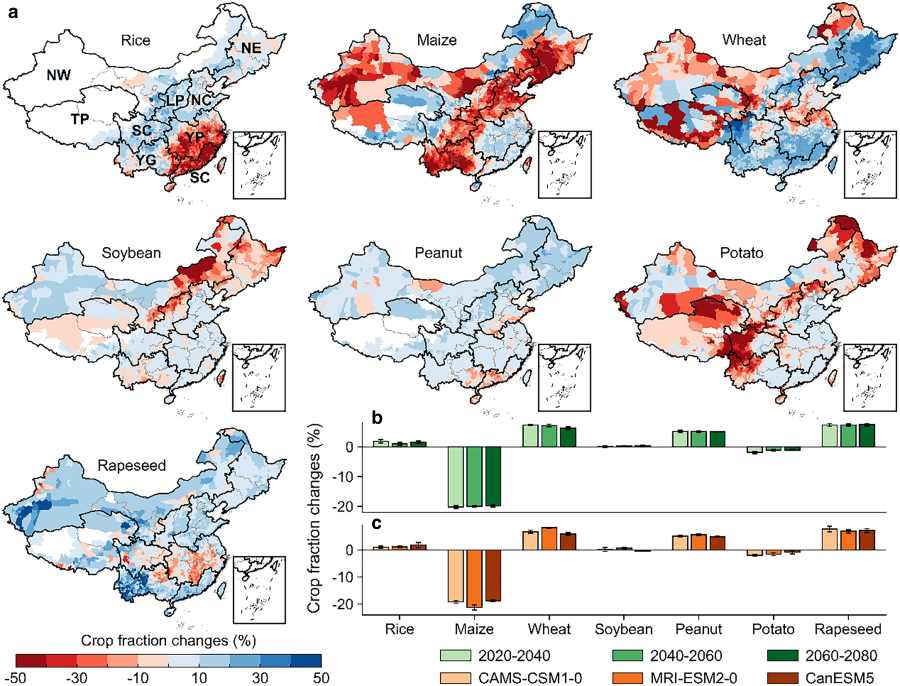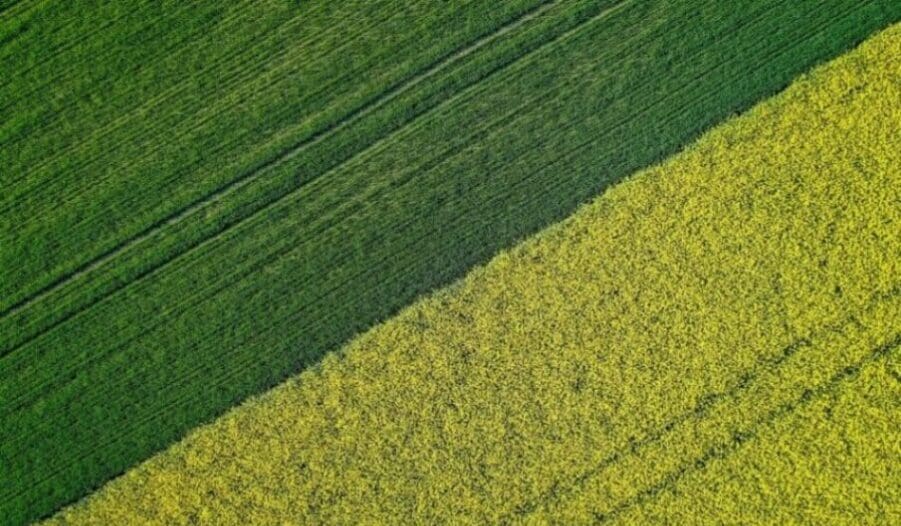China’s agriculture system, a linchpin of its food security, faces increasing pressure to adapt as climate change reshapes the country’s landscape.
Researchers have proposed a large-scale redistribution of crop types to enhance productivity, reduce environmental burdens, and secure a sustainable food supply for future generations.

The study, published in PNAS Nexus, suggests replacing maize and rapeseed cultivation with crops better suited to the changing climate. By modeling future scenarios using a dynamic global vegetation framework, the research identified optimal planting patterns that could increase crop production by 14.1%, reduce nitrogen loss by 8.2%, and cut irrigation water use by 24.0%.
Shifting maize cultivation away from arid northern regions could significantly conserve water resources, while drought-tolerant wheat could thrive in the Northeast China Plain. Meanwhile, northern China’s warming conditions and increased rainfall may allow for expanded rice cultivation. Other adjustments include growing soybeans in the Yangtze Plain and northern China and introducing water-intensive potato farming in southern regions.
The researchers argue that such strategic changes, paired with government-led coordination and incentives, could ensure better resource management and higher yields. Current practices, marked by excessive nitrogen use and inefficient water consumption, pose risks to environmental sustainability and food security. The study highlights that crop switching, when integrated with improved fertilizer management, could address these challenges.
China’s agricultural evolution has relied heavily on expanding fertilizer use and irrigation to meet soaring food demands. However, this high-input system has created significant environmental and resource strains. Optimizing planting patterns presents a pathway for balancing productivity with ecological stability.
While acknowledging the complexities of transforming smallholder-based farming systems, the authors point out the substantial benefits of crop switching, including reduced reliance on imports for crops like soybeans. This approach aligns with broader goals of sustainable development, offering a model for adapting agriculture to the uncertainties of climate change.
The findings illustrate the potential for modernized farming practices to meet the dual goals of feeding a growing population and minimizing environmental impact, presenting policymakers with an actionable strategy for long-term agricultural resilience.
Journal Reference:
Qi Guan, Jing Tang, Kyle Frankel Davis, Mengxiang Kong, Lian Feng, Kun Shi, Guy Schurgers, ‘Improving future agricultural sustainability by optimizing crop distributions in China’, PNAS Nexus 4 (1), pgae562 (2025). DOI: 10.1093/pnasnexus/pgae562
Article Source:
Press Release/Material by PNAS Nexus
Featured image credit: wirestock | Freepik




